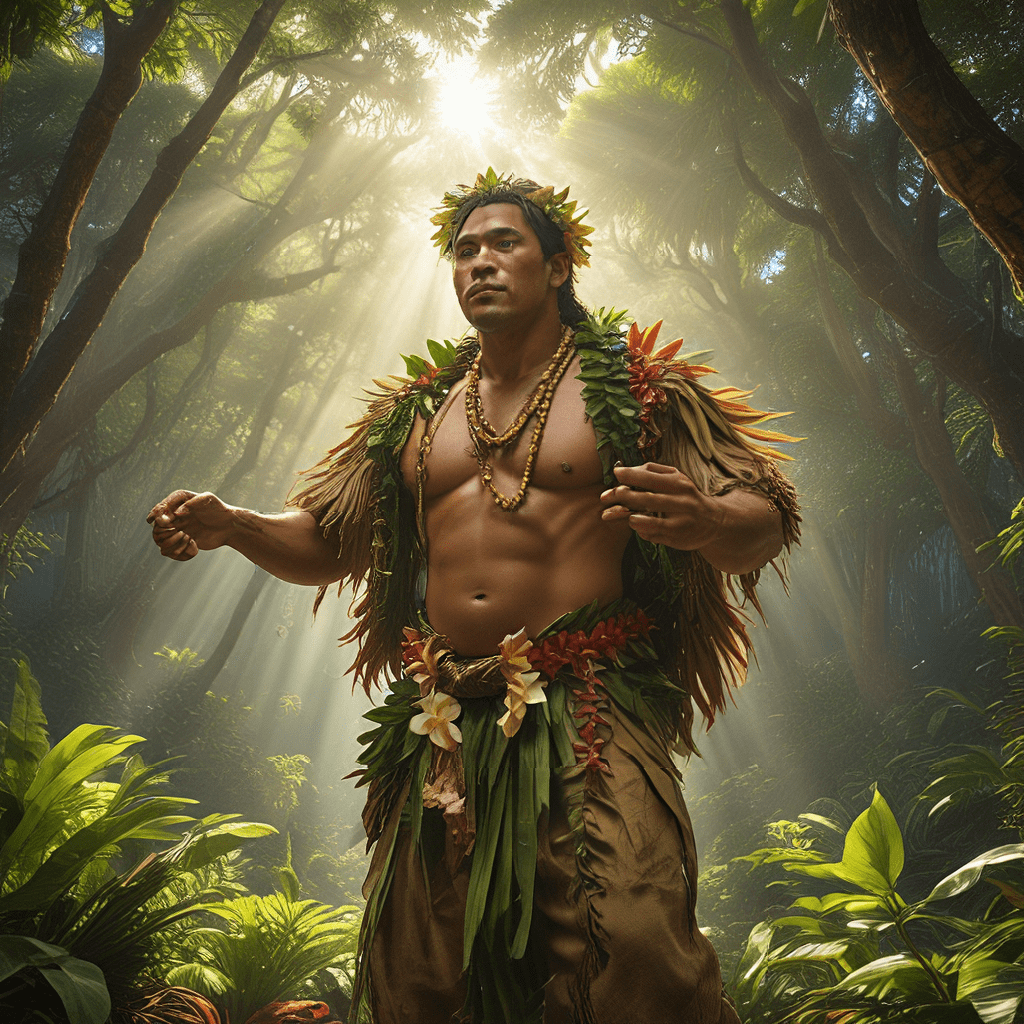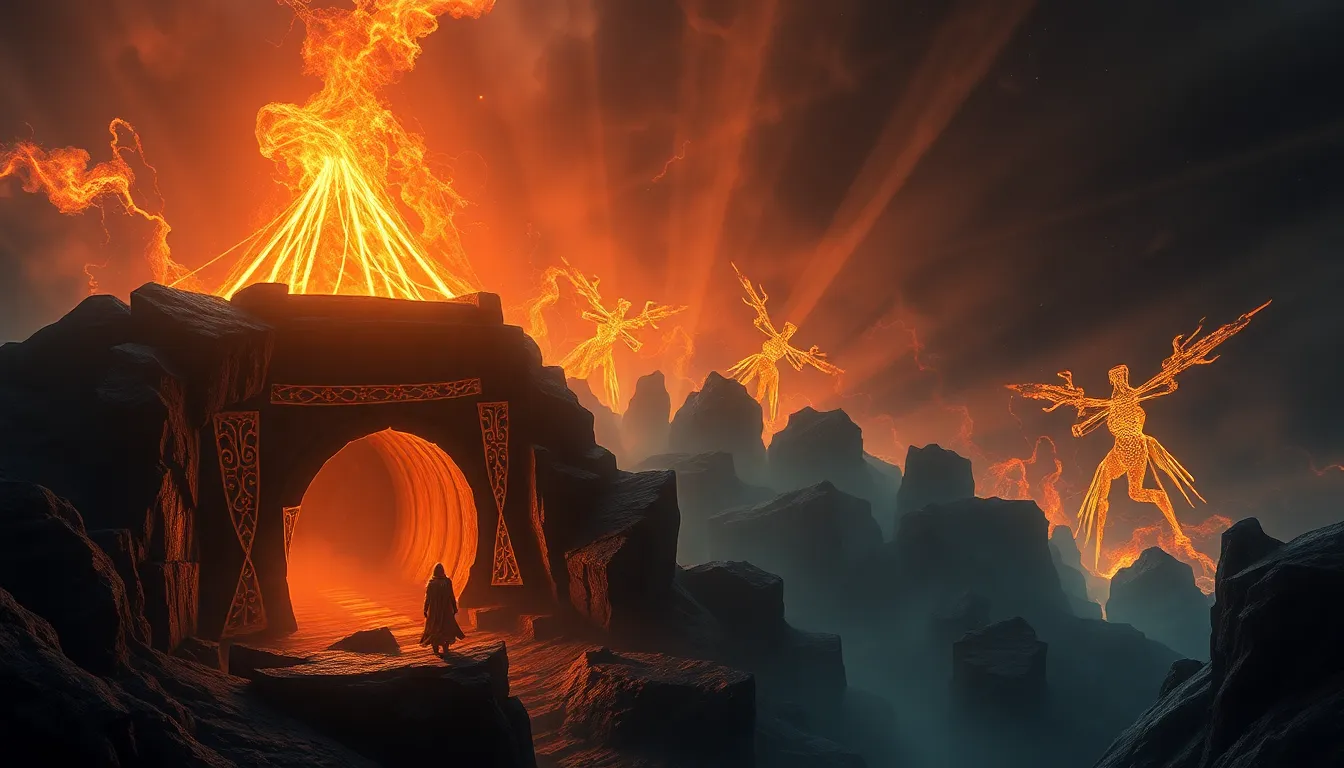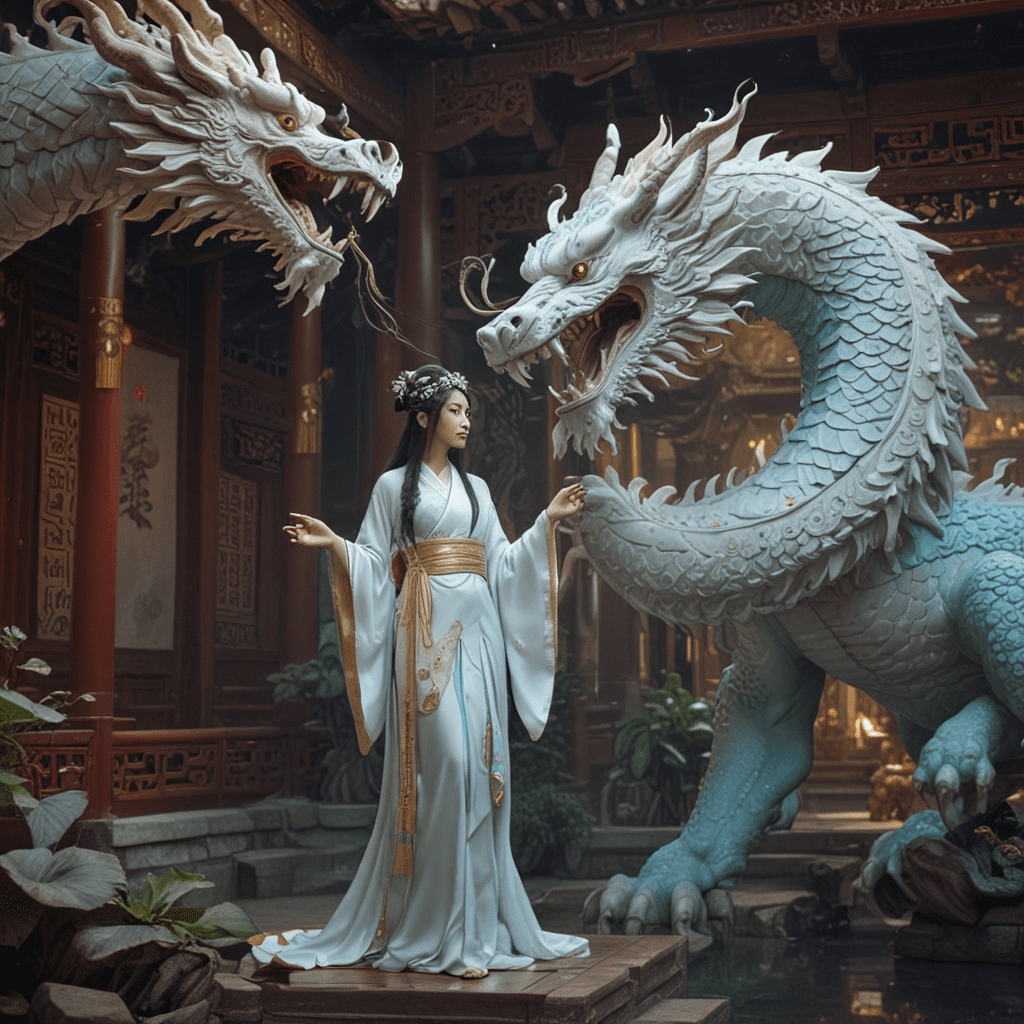Hawaiian Mythology: The Sacred Bond of Ohana
The Concept of Ohana in Hawaiian Mythology
In Hawaiian mythology, the concept of "ohana" goes far beyond the simple definition of "family." It encompasses a profound spiritual connection that binds individuals together through shared ancestry, history, and cultural heritage. Ohana is a fundamental pillar of Hawaiian society, representing a profound sense of belonging, responsibility, and unwavering support. It is a powerful force that shapes Hawaiian values, beliefs, and way of life.
Origins and Significance of the Term “Ohana”
The word "ohana" derives from the ancient Hawaiian language and is believed to have originated from the root word "hana," which means "to work" or "to do." This suggests that the concept of ohana was intrinsically connected to the idea of shared responsibilities and collective effort. In traditional Hawaiian society, individuals were expected to contribute to the well-being of their ohana, regardless of their specific roles or relationships.
The term "ohana" signifies a sense of interconnectedness that extends beyond immediate blood relatives. It encompasses extended family members, close friends, adopted family members, and even individuals who share a common bond through shared experiences or cultural heritage. This expansive definition of ohana reflects the belief that every individual contributes to the larger community and is deserving of care and support.
The Role of Ohana in Hawaiian Creation Myths
In Hawaiian creation myths, the concept of ohana plays a central role. The story of the creation of the Hawaiian islands by the goddess Pele and her siblings highlights the importance of family unity and cooperation. Pele, the fiery volcano goddess, embodies the destructive and creative forces of nature, while her siblings, representing different aspects of the natural world, stand by her side, offering support and guidance.
This myth emphasizes the inherent strength and resilience that arises from familial bonds and the importance of collective action in overcoming challenges. It underscores the idea that ohana is not just a social construct but a foundation upon which Hawaiian society is built, rooted in the very essence of creation itself.
Ohana and the Importance of Lineage and Ancestry
The concept of ohana is deeply intertwined with the importance of lineage and ancestry in Hawaiian culture. Family history is passed down through generations, providing a sense of identity and connection to the past. Understanding lineage allows individuals to trace their roots and understand their place within the larger ohana.
This emphasis on ancestry also highlights the importance of honoring and respecting elders, who hold the wisdom and knowledge of past generations. Elders play a vital role in guiding and mentoring younger members of the ohana, ensuring the continuity of cultural traditions and values.
Responsibilities and Obligations Within Ohana
The concept of ohana extends beyond shared ancestry and encompasses a deep sense of responsibility and obligation. Individuals within ohana are expected to care for each other, provide support in times of need, and contribute to the overall well-being of the group. This sense of responsibility goes beyond material support and encompasses emotional and spiritual well-being.
These obligations are not viewed as burdens but as an integral part of belonging to ohana. They reflect the understanding that individuals are interconnected and their actions have a profound impact on the lives of others. This sense of interdependence fosters a strong foundation of trust, loyalty, and mutual respect.
The Spirit of Cooperation and Mutual Support in Ohana
The concept of ohana fosters a strong sense of cooperation and mutual support among its members. In traditional Hawaiian society, community was paramount, and individuals were expected to work together for the benefit of the collective. This spirit of cooperation was reflected in all aspects of Hawaiian life, from farming and fishing to religious ceremonies and social gatherings.
Ohana members were expected to support each other in times of need, whether it be through physical labor, emotional support, or simply lending a helping hand. This mutual support system created a strong sense of community and ensured that no one was left behind.
The spirit of cooperation was also evident in the practice of communal living, known as "hale," where entire families, extended relatives, and even friends lived together in communal dwellings. This practice fostered a sense of interconnectedness and strengthened the bond of ohana. It provided a sense of shared responsibility for the well-being of the group, further promoting the idea of mutual support and cooperation.
Ohana as a Source of Strength and Resilience
The concept of ohana is a powerful symbol of strength and resilience in Hawaiian culture. Throughout history, the Hawaiian people have faced numerous challenges, including colonization, cultural suppression, and natural disasters. Through it all, the bond of ohana has served as a source of strength and resilience, helping the Hawaiian people overcome adversity and preserve their cultural heritage.
During times of hardship, ohana provided a lifeline of support, offering emotional comfort, financial assistance, and practical help. This unwavering support system strengthened the collective spirit of the Hawaiian people and helped them to endure through difficult times.
The concept of ohana also embodied a sense of unity and purpose. In the face of challenges, the Hawaiian people came together, drawing strength from their shared history, culture, and values. This collective strength allowed them to resist oppression, advocate for their rights, and protect their cultural traditions.
The Role of Ohana in Navigating Life’s Challenges
The concept of ohana plays a crucial role in helping individuals navigate life's challenges. The unwavering support and guidance of ohana provides a sense of security, belonging, and purpose, empowering individuals to face adversity with courage and resilience.
Ohana members offer emotional support, practical assistance, and guidance, helping individuals to cope with life's challenges, overcome obstacles, and make important decisions. This support system creates a sense of belonging and provides a safety net for individuals, especially during times of transition or hardship.
Furthermore, ohana provides a sense of community and belonging, which is essential for mental and emotional well-being. The unconditional love and support of ohana can help individuals feel grounded, connected, and supported, even during difficult times. This sense of community and belonging is particularly crucial for individuals who may be facing difficult decisions, navigating personal crises, or experiencing feelings of isolation.
Ohana and the Preservation of Hawaiian Culture
The concept of ohana plays a pivotal role in the preservation of Hawaiian culture. Through generations, ohana has been responsible for passing down traditional knowledge, skills, and values. Elders within the ohana share their wisdom and experiences, ensuring the continuity of Hawaiian cultural practices and traditions.
Ohana also plays a vital role in the preservation of the Hawaiian language. Language is a central component of cultural identity, and ohana has been instrumental in keeping the Hawaiian language alive. Children learn the language from their parents, grandparents, and other family members, preserving its richness and beauty for future generations.
The concept of ohana also encourages the celebration of Hawaiian culture through traditional ceremonies, festivals, and gatherings. These events bring ohana members together, strengthening their bond and fostering a sense of community pride. They also serve as a powerful platform for sharing cultural knowledge and traditions with younger generations, ensuring that Hawaiian culture remains vibrant and alive.
The Enduring Relevance of Ohana in Modern Hawaiian Society
The concept of ohana remains deeply ingrained in modern Hawaiian society. Even though Hawaiian society has undergone significant changes in recent decades, the importance of ohana continues to shape Hawaiian values, beliefs, and way of life.
Ohana continues to be a source of strength, resilience, and support for individuals and families, particularly during times of hardship. The concept of ohana also serves as a reminder of the importance of community, cooperation, and mutual support.
The enduring relevance of ohana is evident in the many ways it is celebrated and incorporated into modern Hawaiian life. From traditional ceremonies like "luau" to modern community organizations, the concept of ohana continues to inspire a sense of belonging, interconnectedness, and shared responsibility.
FAQ
What is the meaning of ohana in Hawaiian culture?
Ohana is a Hawaiian word that means "family," but it encompasses a much broader concept than just blood relatives. It includes extended family, close friends, adopted family members, and even individuals who share a common bond through shared experiences or cultural heritage.
What is the importance of ohana in Hawaiian mythology?
Ohana is a central theme in Hawaiian mythology, representing a profound spiritual connection that binds individuals together through shared ancestry, history, and cultural heritage. It is a powerful force that shapes Hawaiian values, beliefs, and way of life.
How is ohana relevant in modern Hawaiian society?
The concept of ohana remains deeply ingrained in modern Hawaiian society, serving as a source of strength, resilience, and support for individuals and families. It also serves as a reminder of the importance of community, cooperation, and mutual support.




